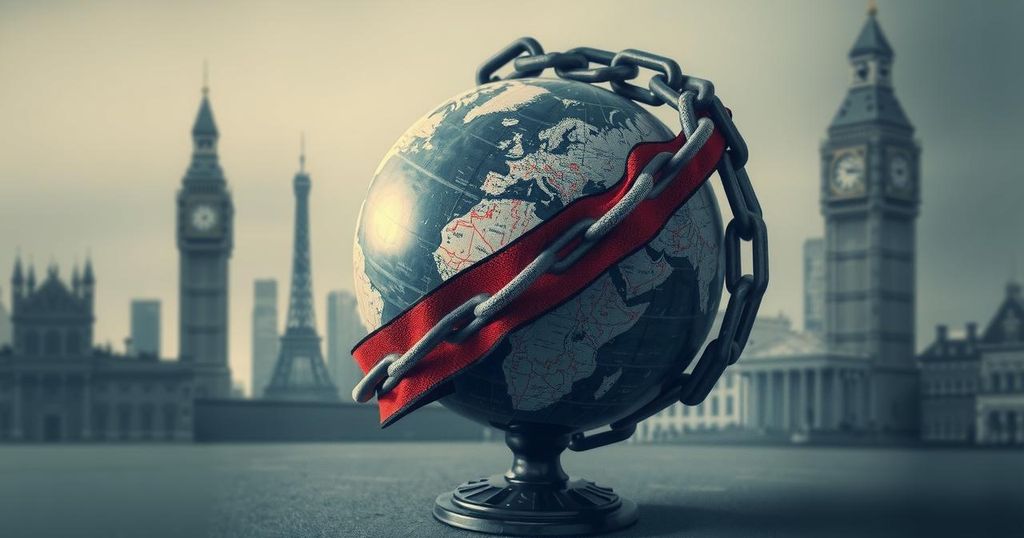Civil rights groups are alarmed over President Trump’s new executive order that may reinstate a travel ban targeting countries like Iran, Iraq, Syria, Libya, Sudan, Somalia, and Yemen. Advocacy organizations have opened a hotline for affected travelers as they navigate uncertainties. The ADC is monitoring and evaluating potential legal actions against the order, which reflects ongoing tensions surrounding discrimination based on religion and ethnicity.
Civil rights organizations in the United States are expressing alarm over President Donald Trump’s recent executive order, which raises the possibility of reinstating a travel ban affecting countries such as Iran, Iraq, Syria, Libya, Sudan, Somalia, and Yemen. Advocacy groups assert that this potential directive may revive policies that disproportionately impact Muslim and Arab-majority nations, reinforcing harmful stereotypes and infringing on constitutional rights. As tensions escalate, these nations are under renewed scrutiny amidst fears of exclusion and discrimination.
The executive order, signed on January 20, has prompted extensive worry among civil rights groups highlighting that it could facilitate discrimination based on religion and ethnicity. This renewed threat has led advocacy organizations to establish a 24-hour hotline intended to assist affected travelers, providing essential support as they navigate the uncertainties surrounding the order.
Despite numerous inquiries from various media outlets and civil rights organizations, the White House has not disclosed details regarding the executive order’s application or scope. This lack of transparency has exacerbated the public’s concern about the potential repercussions of such a directive.
The American-Arab Anti-Discrimination Committee (ADC) is actively monitoring the situation. According to Abed Ayoub, the national executive director of the ADC, the organization is considering legal avenues to address the implications of the executive order, with a court challenge on the horizon.
This is not the first instance of scrutiny regarding travel bans during President Trump’s administration, as previous attempts to restrict entry from Muslim-majority nations resulted in widespread protests and legal opposition. Advocates for civil rights contend that such policies perpetuate negative stereotypes and marginalized communities.
Civil rights groups are imploring the administration to evaluate the broader consequences of its policies meticulously. They underscore the critical need to preserve the constitutional values of equality and non-discrimination, ensuring no specific groups are targeted unfairly.
As developments unfold, civil rights organizations, affected individuals, and legal analysts remain vigilant in monitoring the situation. The possibility of reinstating a travel ban has reignited discussions regarding the balance between ensuring national security and protecting fundamental civil rights.
The article discusses concerns raised by U.S. civil rights organizations over a recent executive order by President Trump that could reinstate a travel ban on nations predominantly composed of Muslim populations. Such an order potentially revives discriminatory practices that have previously attracted public and legal opposition, thus evoking a broader conversation about national security and constitutional rights. The context lies in the history of travel bans under Trump’s presidency and the socio-political implications of targeting specific nations based on ethnicity and religion.
In summary, the civil rights community is alarmed by the potential reinstatement of a travel ban through President Trump’s recent executive order. Organizations are mobilizing to provide support to affected individuals, while also exploring legal challenges against discriminatory practices. As the situation develops, the importance of upholding constitutional values of equality remains paramount amidst concerns about national security measures that may disproportionately affect certain groups.
Original Source: www.travelandtourworld.com






